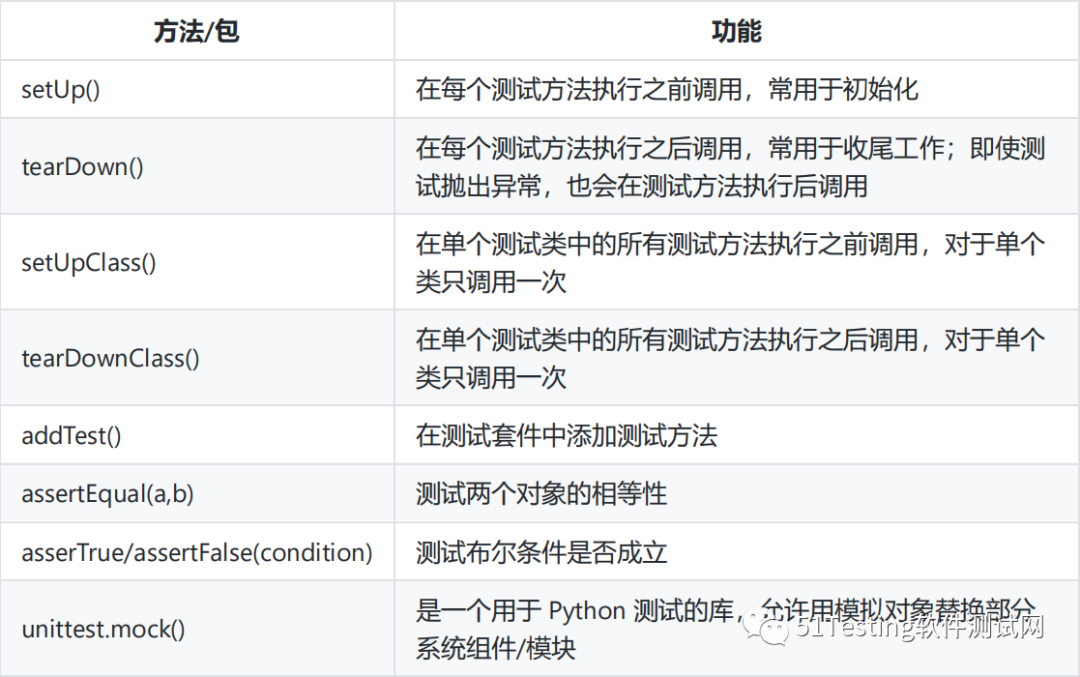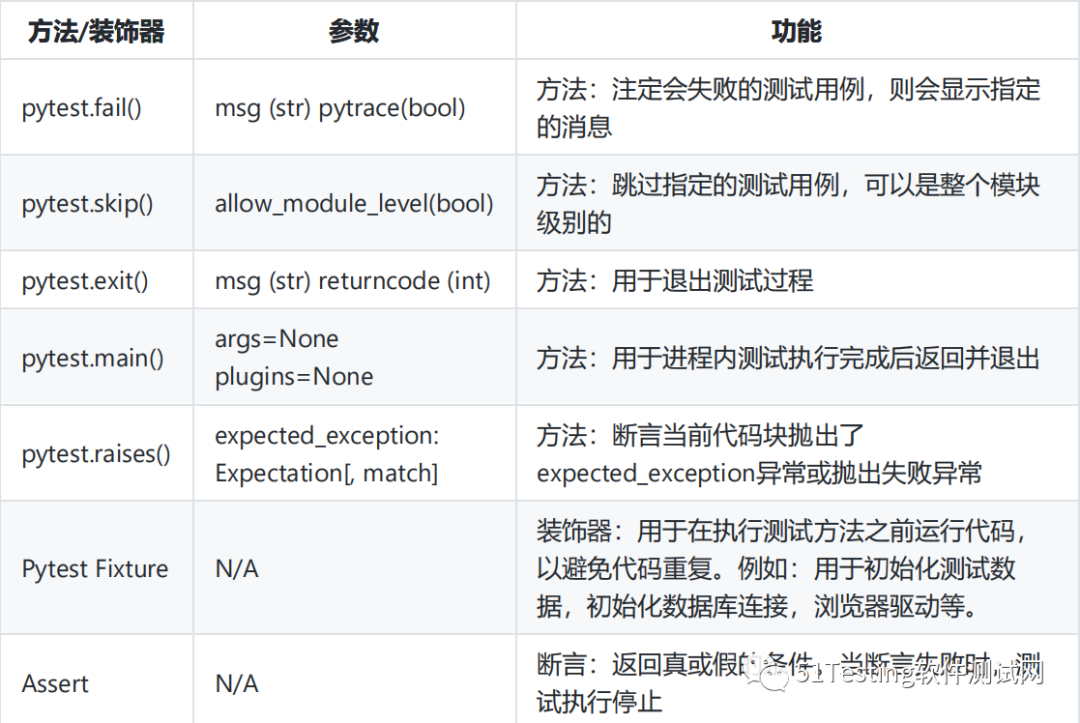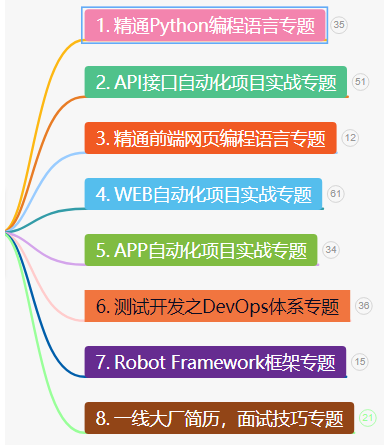catalogue
Preliminary study on Framework
Python's unique advantages have created a series of test frameworks. In front of these test frameworks, which is better or worse? How to choose?
As the saying goes, "there is no best, there is only the most suitable". Today, we will compete with the four mainstream automated testing frameworks frequently used in Python to select the one that is most suitable for your current project needs.
-
Robot Framework
-
Unittest
-
Nose2
-
Pytest
Preliminary study on Framework
Python
Robot Framework
Robot Framework, referred to as RF, is an open source automated testing framework based on Python, which creates test cases in the form of keywords.
Its tabular use case writing mode, rich libraries and toolsets, as well as its powerful functions such as parallel testing, make RF very popular among testers.
RF is mainly used in acceptance testing and test driven development.
In addition, RF also supports automated testing of desktop applications, mobile applications, Web applications, etc. on cross platforms such as Windows, Mac OS and Linux.
Demo
*** Settings ***Library SeleniumLibrary*** Variables ***${SERVER} localhost:7272${BROWSER} Firefox${DELAY} 0${VALID USER} demo${VALID PASSWORD} mode${LOGIN URL} http://${SERVER}/${WELCOME URL} http://${SERVER}/welcome.html${ERROR URL} http://${SERVER}/error.html*** Keywords ***Open Browser To Login Page Open Browser ${LOGIN URL} ${BROWSER} Maximize Browser Window Set Selenium Speed ${DELAY}Login Page Should Be Open Title Should Be Login PageGo To Login Page Go To ${LOGIN URL} Login Page Should Be OpenInput Username [Arguments] ${username} Input Text username_field ${username}Input Password [Arguments] ${password} Input Text password_field ${password}Submit Credentials Click Button login_buttonWelcome Page Should Be Open Location Should Be ${WELCOME URL} Title Should Be Welcome Page(slide left and right to view the complete code)
Unittest
Unittest is an automated unit test framework based on Python. It belongs to the Python standard library and supports the reuse of test suites.
Just import the Unittest library into the test script, and testers can customize test classes, create test cases, and pass Unittest Main() runs all test cases.
Demo
import unittestdef add(x, y): return x + yclass Test(unittest.TestCase): def test_add_001(self): self.assertEquals(add(4, 5), 9) def test_add_002(self) self.assertNotEqual(add(1,2),10)if __name__ == '__main__': unittest.main()
(slide left and right to view the complete code)
Common packages / methods are as follows:

Nose2
Nose2 inherits from nose. It is also a Python based unit testing framework and can be regarded as an extension of Unittest framework. Therefore, test cases written by Unittest can be run under nose2.
Nose2 has a rich set of plug-ins, including writing test cases, exception handling and other functions. Compared with the Unittest and Robot Framework mentioned above, it is not so popular, but it is still a useful open source testing framework.
Demo
from mynum import *import nosedef add(x, y): return x + ydef test_add_integers(): assert add(5, 3) == 8def test_add_floats(): assert add(1.5, 2.5) == 4def test_add_strings(): nose.tools.assert_raises(AssertionError, add, 'hello', 'nose2')if __name__ == '__main__': nose.run()
(slide left and right to view the complete code)
Common packages / methods are as follows:

Pytest
Pytest is another very popular open source testing framework for Python. Its syntax is simple and has rich plug-ins. It can be applied to many test types, such as function test, API test, database and UI test.
Demo1
import pytestdef test_demo_method1(): x = 1 y = 2 assert x+1 == y, "test pass"def test_demo_method2(): x = 6 y = 3 assert x-1 == y+2, "test failed"
(slide left and right to view the complete code)
Common packages / methods are as follows:

Demo2
The following is @ pytest Take the fixture decorator as an example. Take a brief look at its initialization function:
(1) Create a separate conf test Py file, which contains a file with @ pytest Fixture decorated method that returns a list of data.
import pytest@pytest.fixturedef supply_AA_BB_CC(): aa = 25 bb = 35 cc = 45 print("This is a separate file[conftest.py],Contains fixture label") return[aa,bb,cc](slide left and right to view the complete code)
(2) Call conf test Py to obtain initialization test data.
import pytestdef test_withAA(supply_AA_BB_CC): zz = 35 assert supply_AA_BB_CC[0]== zz, "Verification failed. They are not equal"def test_withBB(supply_AA_BB_CC): zz = 35 assert supply_AA_BB_CC[1]== zz, "Verification failed. They are not equal"def test_withCC(supply_AA_BB_CC): zz = 35 assert supply_AA_BB_CC[2]== zz, "Verification failed. They are not equal"
(slide left and right to view the complete code)
(3) The operation results are shown as follows:
---------------------------- Captured stdout setup ----------------------------This is a separate file[conftest.py],Contains fixture label=========================== short test summary info ===========================FAILED test_basic_fixture1.py::test_withAA - AssertionError: Verification failed, both are not valid...FAILED test_basic_fixture1.py::test_withCC - AssertionError: Verification failed, both are not valid...========================= 2 failed, 1 passed in 1.20s =========================
(slide left and right to view the complete code)
Frame selection
Python
After having a basic understanding of the four mainstream Python automation testing frameworks, how to choose the one suitable for the current project?
In order to be targeted and understand the advantages and limitations of each framework, it is the first choice to select the best Python testing framework. Let's explore it.
Robot Framework

Unittest

Nose2

Pytest

While comparing the advantages and limitations of the test framework, it needs to be considered in combination with the test types:
-
Function test: Robot Framework, Pytest, Unittest
-
Behavior driven testing: Behave and Lettuce (these two are not covered in this article)
summary
Python
Well, the study is over. If you want to know more about it, please pay attention to me! The following is a letter that Xiaobian wants to write to readers! Remember to read it carefully!

Thanks to everyone who reads my article carefully. Seeing the rise and attention of fans all the way, reciprocity is always necessary. Although it is not very valuable, you can take it away for free if you can use it:
① More than 2000 software test e-books (both mainstream and classic books should be available)
② Software testing / automated testing standard library data (the most complete Chinese version)
③ Project source code (forty or fifty interesting and classic hand training projects and source code)
④ Python programming language, API interface automation test, web automation test, App automation test (suitable for Xiaobai)

⑤ Python learning roadmap (bid farewell to non mainstream learning)
The above information is in my QQ technology exchange group (technology exchange and resource sharing, you will be interrupted when the advertisement comes in)
You can take it away by yourself, group number 768747503 remarks (csdn999) The free information in the group is the essence of my more than 10 year test career. And the great gods of the same industry exchange technology together
--------
"Learning materials note taking tool document collection"

Scan QR code,
Note "csdn999"
Miss, I invite you to study together~~
Discuss test technology with like-minded test partners

Be sure to note the code: CSDN999
--------
